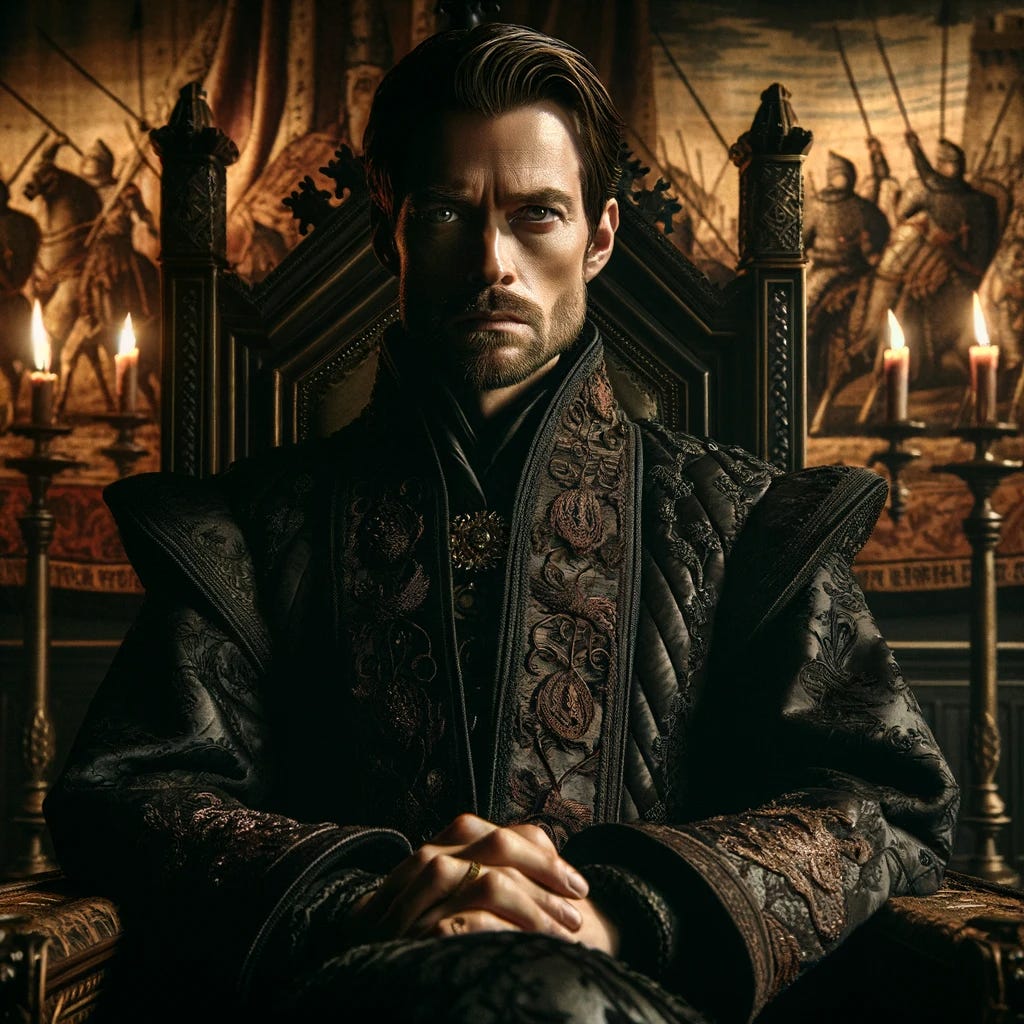The Power of Virtù: How Machiavelli Outlines the Blueprint for Political Success
A combination of dark traits and good fortune can propel one to the heights of power.
Scrolls of the Dark Arts for Scholars
The Dark Arts have been practiced since antiquity. Achieving Dark Arts mastery requires studying the manuals of the Dark Arts and internalizing their lessons.
Dark Arts Instruction Manuals include the following classics:
One: The Prince, by Niccolò Machiavelli. Amoral statecraft.
Two: The Art of War, by Sun Tzu, Statecraft and Organized Violence.
Three: The 48 Laws of Power, by Robert Greene.
This is part of a series on The Prince, by Niccolò Machiavelli. It provides a summary and real-life historical examples of other Dark Arts masters who applied its principles.
In "The Prince," Machiavelli discusses two key concepts that are central to his philosophy: Virtù and Fortuna.
Virtù
Virtù is a term Machiavelli uses to describe the range of personal qualities that a prince (or ruler) must possess to maintain his state and achieve great things. It is not virtue in the moral or ethical sense; in fact, practicing virtue or moral restraint is antithetical to achieving Virtù. Instead, Virtù is a set of attributes that contribute to a prince's personal strength and ability to rule effectively. These attributes include:
Courage: A prince must be brave in the face of danger, especially in battle.
Wisdom: The ability to make sound decisions is crucial for a leader.
Cunning: Machiavelli often emphasizes the importance of being shrewd and capable of deceit when necessary.
Decisiveness: A prince must be able to make quick decisions and stick to them.
Strength: Both physical and mental strength are necessary to command respect and maintain order.
Adaptability: The ability to adapt to change is essential for survival and success.
Virtù involves taking control of one’s own destiny as much as possible in a world that is unpredictable and full of chance.
Though not specifically mentioned by Machiavelli, in order to exercise the qualities of Virtù a leader must be ruthless, indifferent to the suffering of others, and willing to inflict pain on perceived enemies.
Though cruelty is not a requirement, taking delight in the suffering of one’s enemies is helpful in developing Virtù. It’s a major achievement on the dark path.
Fortuna
Fortuna is the concept of fortune or luck. Machiavelli personifies it as a woman who is fickle and can bring both good luck and misfortune. Fortuna represents the element of chance in human affairs and the external forces that can have a significant impact on a prince's reign. Machiavelli suggests that although Fortuna cannot be fully controlled, a wise and strong ruler can mitigate its unpredictability through virtù.
Here are key points about Fortuna:
Unpredictability: Fortuna can change without warning, affecting states and rulers without regard for their actions or merits.
The River Analogy: Machiavelli compares Fortuna to a river that floods, causing destruction. A wise ruler, like a good engineer, anticipates and prepares for such disasters through dams and levees, representing prudent forethought and preparations.
Opportunity: While Fortuna can be destructive, it also provides opportunities that a prince with virtù can exploit.
Control: Machiavelli believes that Fortuna controls half of human actions but leaves the other half or so to be controlled by ourselves.
Machiavelli argues that a ruler must have the virtù to manage Fortuna's influence effectively. While a prince cannot control Fortuna completely, he can anticipate and prepare for change, thus shaping the outcome of events to his favor. This balance between controlling one's own fate and being subject to the whims of chance is a central theme in Machiavellian political thought.
Historical Examples
Alexander the Great - Known for his unparalleled military genius, Alexander expanded his empire to unprecedented extents, demonstrating strategic brilliance and fearless leadership.
Julius Caesar - A Roman general and statesman, Caesar was renowned for his political acumen and military prowess, navigating the complex Roman political landscape and expanding the Roman territory.
Genghis Khan - As the founder of the Mongol Empire, Genghis Khan displayed exceptional military strategy and leadership, creating one of the largest empires in history.
Catherine the Great of Russia - An empress who greatly expanded the Russian Empire and promoted Westernization and modernization along European lines.
Napoleon Bonaparte - A French military leader who rose to prominence during the French Revolution, Napoleon was known for his strategic skills in warfare and his establishment of the Napoleonic Code.
Ashoka the Great - An Indian emperor of the Maurya Dynasty who initially expanded his empire through warfare.
Frederick the Great of Prussia - Known for his military victories, his reorganization of the Prussian armies.
Otto von Bismarck - The Prussian chancellor who masterminded the unification of Germany and served as its first chancellor, shaping the policy of Realpolitik.
Dark Arts Disclaimer
The path of the Dark Arts beckons to the strong and ambitious, yet it carries its own set of consequences.
Most who follow the dark path regret their choices, often in the twilight of their lives, after being abandoned by their family or suffering a career-ending setback from which there is no recovery.
Do-gooders who follow the path of light wish to witness the downfall of Dark Arts Masters. Due to our lack of compassion or mercy, they shrink from our potency, but they actively work to undermine us whenever they can.
Followers of the dark path discover that genuine affection from others is rare or absent. Instead, we’re surrounded by fearful sycophants and aspiring apprentices who feign fondness but will betray us when it suits them.
The demise of Dark Arts Master is inglorious, symbolically in their professional lives and emotionally within the confines of their homes. Often, the actions of others seal their fate, and they meet their lonely and forgotten end, having alienated everyone.
The allure of power attracts individuals willing to pursue this fickle Fate. We adhere to power’s principles and ultimately meet our cruel fate at its cold hands.




